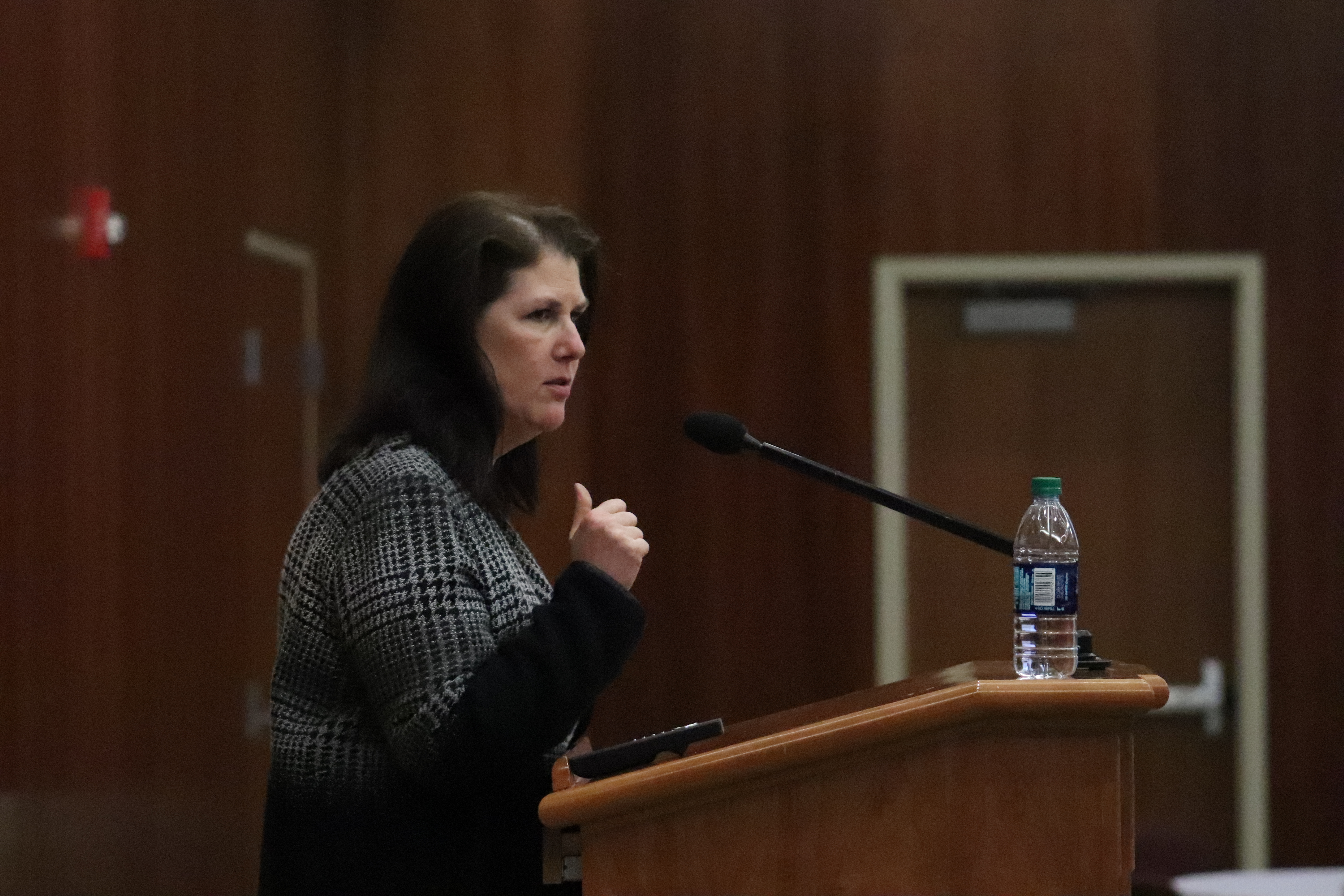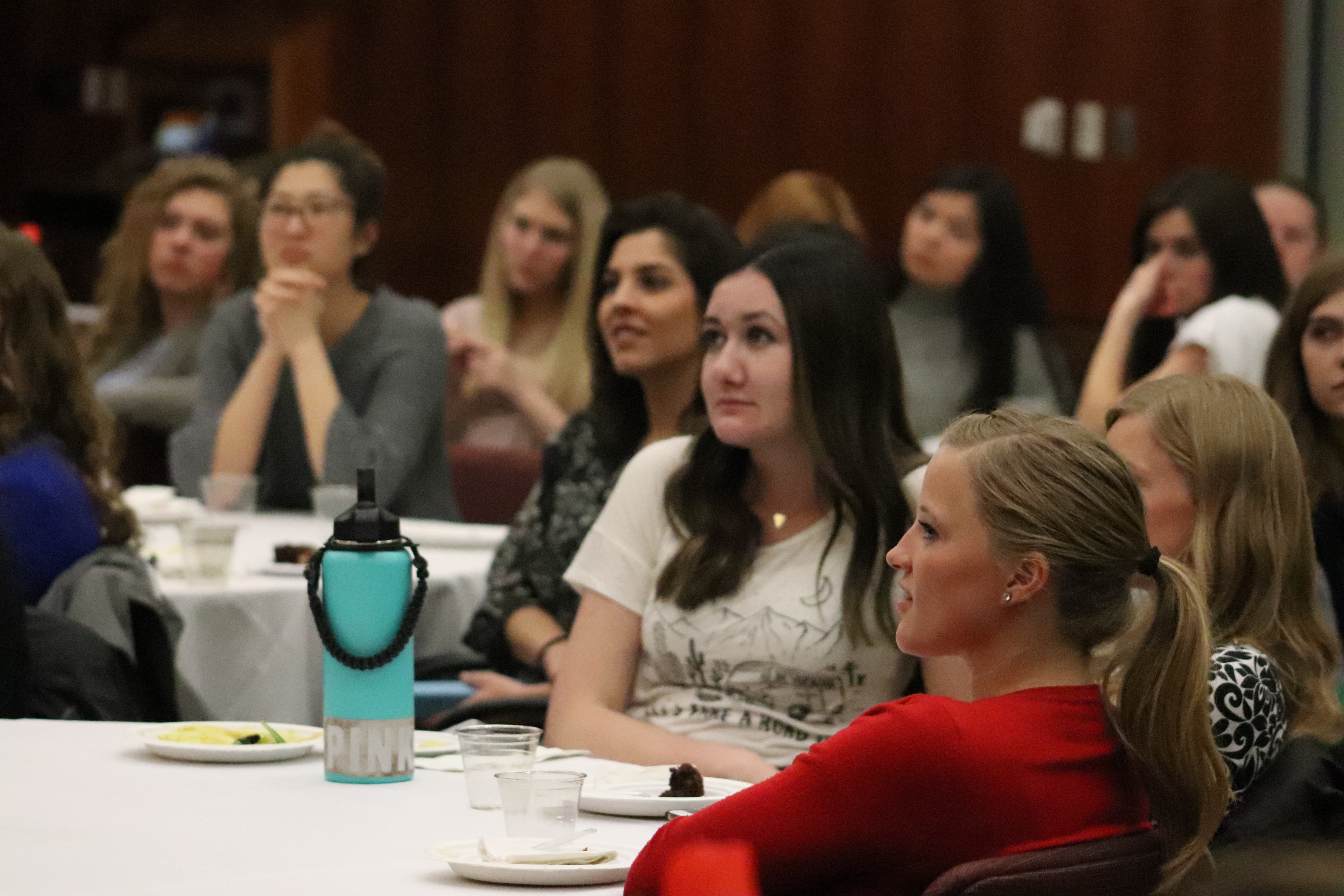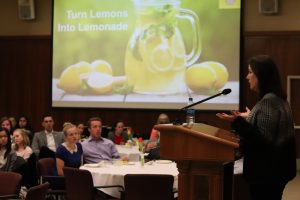
The BYU Global Supply Chain Association held its first ever Women in Supply Chain event March 7.
Global Supply Chain Association Vice President of Major Affairs Anne Quackenbush said the goal of the event was to help pre-management students learn more about supply chain, talk to business professionals and network. The association is for anyone who is interested in supply chain.
Brooke Squires will serve as the association’s president during the 2018–2019 school year. She said she enjoys supply chain because it’s all about problem solving and making things more efficient.
“It’s a cool combination of people and numbers,” Squires said. “I just did not want to do the same thing everyday in my job, so it’s cool because you’re over people and working with a lot of people but it’s also numbers based and statistics and analytics.”
Executive Vice President of External Relations Morgan Dastrup said she is interested in manufacturing operations.
“There are math models and equations that are created so you can set up your factory in the most efficient way and you can be the most time effective, cost effective and (produce) the best quality — and you can do it all with math and that is really cool,” Dastrup said.
Illia Wen, executive vice president of communications, said it can be difficult to choose just one route in college. She said supply chain is for well-rounded people and lends itself to a variety of opportunities.
The global aspect is what attracted Wen the most. She said supply chain connects the entire world through business, as well as social, political and economic issues.
“Whenever people ask me what advice I would give to women it would be the same as the advice I would give to men,” Wen said. “We’re trying to define ourselves as professionals in our fields — not as women in our field — rather than seeing us as two different entities.”

Beth Whited, executive vice president and chief marketing officer for Union Pacific, gave the keynote address during the event. She spoke on her own experiences in her career and gave tips for finding success and growing in the field.
She shared advice for anyone aspiring for a career in business or supply chain. One point she made was that “sometimes you win and sometimes you learn.”
“You can’t go into your work life thinking you’re going to win every argument or that you’re always going to be right,” Whited said. “If you aren’t right, you need to make sure you learn something from it because everything that you experience is an opportunity for learning.”
She emphasized the importance of diversity and working as a team.

“You are always going to be better as a team, you’re always going to be better with people who aren’t just like you,” Whited said. “People who think differently, people who challenge the status quo, people who maybe get right up in your face and disagree with you.”
She said Union Pacific is very team-oriented and this has helped her learn how to work with a wide variety of personalities.
“As you rise, pull people up with you — especially women,” Whited said.
Whited said ultimately, work isn’t everything. She encouraged students to invest time in themselves and their family in addition to their careers.
The event had a large turnout and two-thirds of students who attended the event were not supply chain majors — 34 percent of attendees were sophomores and 23 percent were freshman.
Squires said approximately 25 percent of students currently enrolled in the supply chain program are women and she expects this number to continue to grow.




